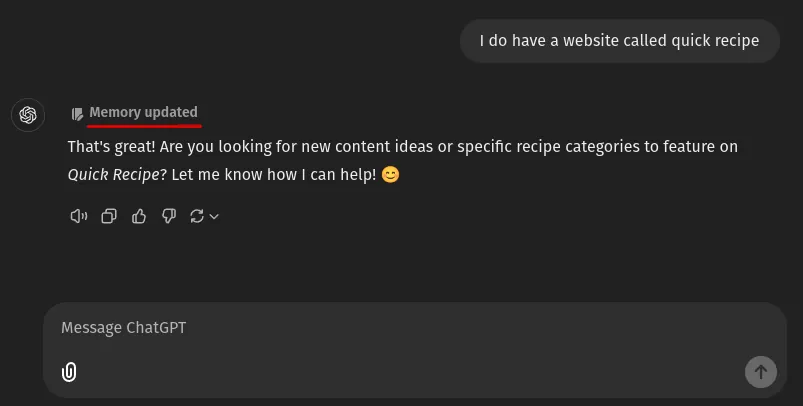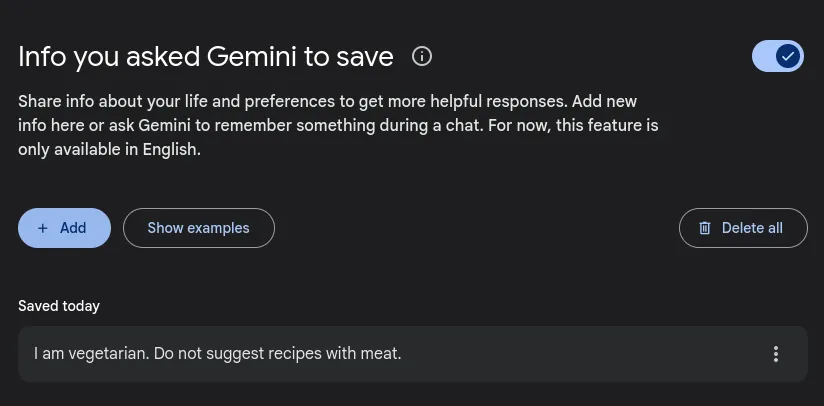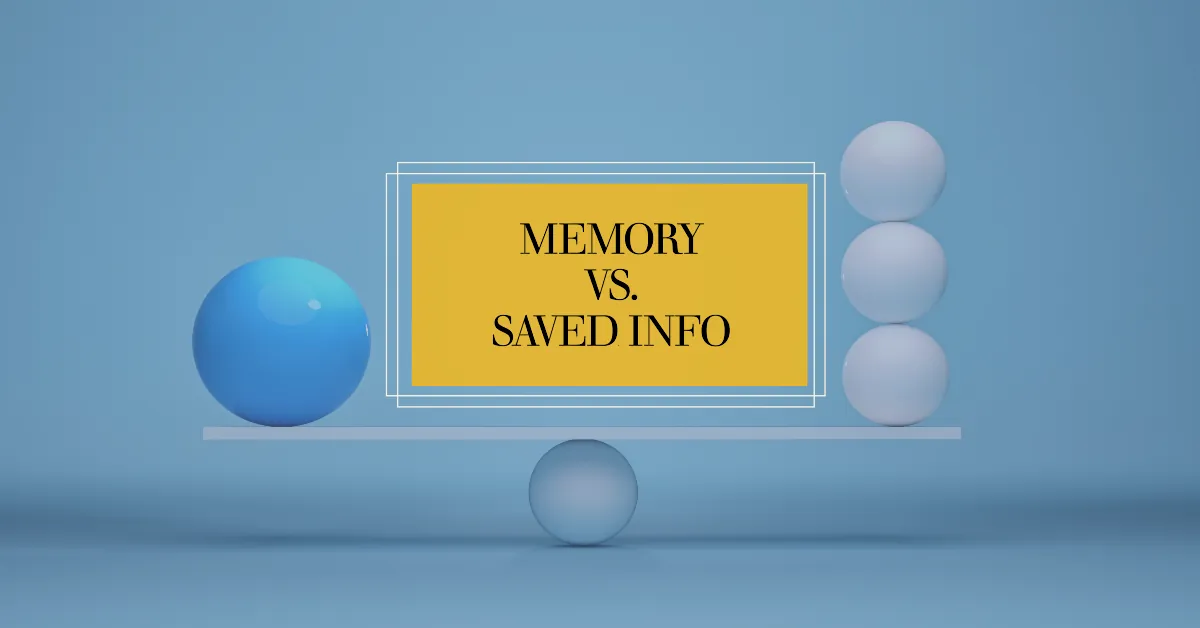Both ChatGPT and Gemini have implemented memory features to enhance their conversational abilities. These features allow the AI models to remember and reference past conversations, leading to more contextually relevant and personalized responses. However, there are some key differences between the two.
1. Automatic vs. Manual Memory

ChatGPT Memory Feature: Automatic memory system is an important feature of ChatGPT. It retains information from interactions without needing specific user commands. This feature helps create a more fluid and natural conversation flow. Users don’t need to worry about reintroducing themselves or recalling past interactions as ChatGPT does this behind the scenes.

Gemini Saved Info Feature: Conversely, Google Gemini’s “Saved Info” requires a manual approach. Users must instruct Gemini explicitly to remember certain details. While this ensures that only pertinent information is saved, it adds an extra step to the process.
2. User Control and Privacy
ChatGPT Memory Feature: ChatGPT places significant emphasis on user control. Users can turn the memory feature on or off at their discretion. Additionally, they have the power to edit or delete the saved information, offering full transparency and control over what is remembered.
Gemini Saved Info Feature: Google Gemini also prioritizes user control and privacy. However, it takes a more proactive stance. Whenever Gemini utilizes saved information, it notifies the user, ensuring they are always aware of the data being accessed. Users can view, edit, or delete saved info at any time, providing a robust system for data management.
3. Accessibility and Cost
ChatGPT Memory Feature: One of the standout aspects of ChatGPT’s memory feature is its accessibility. It is available for free to all users, making personalized interactions easily reachable without any additional cost.
Gemini Saved Info Feature: On the other hand, Gemini’s “Saved Info” feature is reserved for subscribers of Google’s AI Premium Plan. This subscription-based model means that only Gemini Advanced users have access to this feature, potentially limiting its usage to those willing to invest in the premium service.
4. Integration and Transparency
ChatGPT Memory Feature: ChatGPT integrates its memory feature seamlessly into various tasks and conversations. This integration aims to enhance user experience by minimizing redundancy and making interactions more personalized and efficient. The memory works quietly in the background, fostering a natural conversational flow.
Gemini Saved Info Feature: Gemini, while requiring manual input for memory, ensures transparency with frequent notifications when saved info is used. This explicit approach may appeal to users who prioritize knowing exactly when and how their data is utilized.
Comparison Paradigm
| Aspect | ChatGPT | Gemini |
|---|---|---|
| Memory Activation | Automatic | Manual |
| User Control | Can disable/edit/delete | Can view/edit/delete |
| Transparency | Background process | Explicit notifications |
| Cost | Free for all | Premium feature |
Also Read: How ZIP Files Work: The Tech Behind Compression
Conclusion
Both ChatGPT and Gemini offer unique approaches to enhancing AI interactions through memory retention and personalization. ChatGPT’s automatic and free memory feature provides a smooth, user-friendly experience, while Gemini’s manual, subscription-based model emphasizes user control and transparency. Takeaways:
- Activation: ChatGPT’s memory feature is automatic, while Gemini’s “Saved Info” requires manual activation.
- Accessibility: ChatGPT’s feature is free, whereas Gemini’s feature requires a subscription.
- User Control: Both offer user control over saved information, but Gemini provides more explicit notifications
As AI continues to evolve, these memory features will likely become more refined, offering even more personalized and context-aware experiences while maintaining robust privacy protections.

